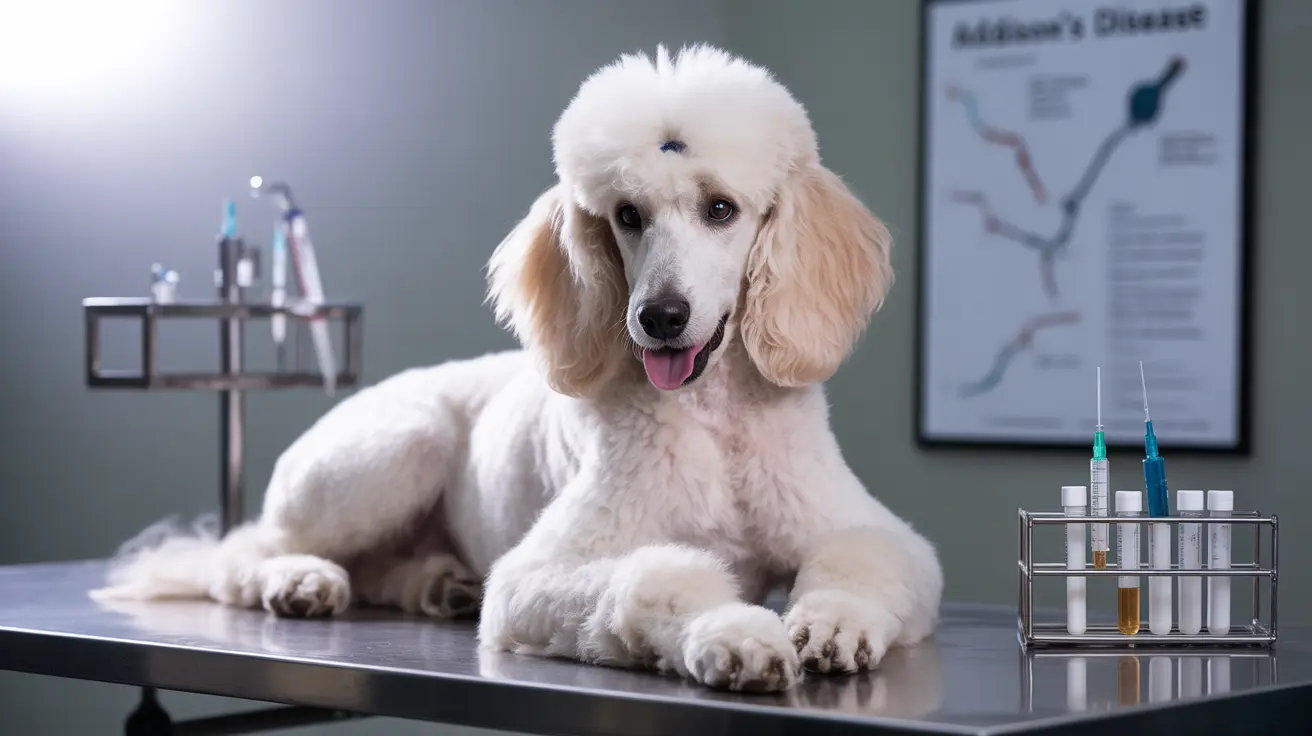Addison's disease, also known as hypoadrenocorticism, is a serious but manageable hormonal condition that affects dogs when their adrenal glands fail to produce essential hormones. While relatively rare, understanding this condition is crucial for pet owners, as early detection and proper treatment can make a significant difference in a dog's quality of life.
In this comprehensive guide, we'll explore everything you need to know about Addison's in dogs, from recognizing early symptoms to understanding treatment options and long-term management strategies.
What is Addison Disease in Dogs?
Addison disease in dogs occurs when the adrenal glands stop producing two critical hormones: cortisol and aldosterone. This condition typically develops when the immune system attacks and damages the adrenal glands, though other factors like infections, trauma, or certain medications can also trigger the disease.
The lack of these essential hormones affects various bodily functions, including:
- Stress response
- Electrolyte balance
- Blood pressure regulation
- Energy metabolism
- Immune system function
Recognizing the Signs and Symptoms
One of the challenges with Addison's disease is that its symptoms can be vague and easily mistaken for other conditions. Common signs include:
Primary Symptoms
- Lethargy and weakness
- Vomiting and diarrhea
- Loss of appetite
- Weight loss
- Increased thirst and urination
Secondary Symptoms
- Shaking or muscle tremors
- Depression
- Slow heart rate
- Dark spots on the skin
- Low body temperature
Diagnosis and Testing
Veterinarians typically diagnose Addison's disease through a combination of blood tests, including the definitive ACTH stimulation test. This process helps rule out other conditions and confirms the presence of adrenal insufficiency.
Treatment Options and Management
While Addison's disease isn't curable, it's highly manageable with proper medical care. Treatment typically involves:
Hormone Replacement Therapy
- Monthly injectable medications (DOCP)
- Daily oral medications (glucocorticoids)
- Regular monitoring and dose adjustments
Crisis Management
An Addisonian crisis is a medical emergency requiring immediate veterinary care. Treatment includes:
- Intravenous fluid therapy
- Electrolyte correction
- Emergency hormone supplementation
Living with an Addisonian Dog
Most dogs with properly managed Addison's disease can lead normal, active lives. Success depends on:
- Consistent medication administration
- Regular veterinary check-ups
- Stress management
- Proper diet and exercise
- Owner vigilance for symptoms of relapse
Frequently Asked Questions
What are the early signs of Addison's disease in dogs, and how is it diagnosed?
Early signs include lethargy, gastrointestinal issues, and increased thirst. Diagnosis involves blood tests and an ACTH stimulation test to confirm adrenal gland dysfunction.
Why do some dog breeds, like Standard Poodles and Labradors, develop Addison's disease more frequently?
Certain breeds have genetic predispositions to autoimmune conditions, including Addison's disease. This genetic component makes them more susceptible to developing the condition.
How is Addison's disease in dogs typically treated, and what medications are used?
Treatment involves hormone replacement therapy, typically using monthly DOCP injections and daily oral glucocorticoids. Regular monitoring ensures proper dosing and effectiveness.
Can Addison's disease in dogs be prevented, or is it a lifelong condition requiring management?
Addison's disease cannot be prevented and requires lifelong management. However, with proper treatment, dogs can maintain an excellent quality of life.
What should I do if I suspect my dog is experiencing an Addisonian crisis at home?
If you suspect an Addisonian crisis, seek emergency veterinary care immediately. This is a life-threatening situation requiring prompt medical intervention.
Understanding and managing Addison's in dogs requires dedication and vigilance, but with proper care and treatment, affected dogs can live full, happy lives. Regular communication with your veterinarian and consistent medication management are key to successful long-term outcomes.






